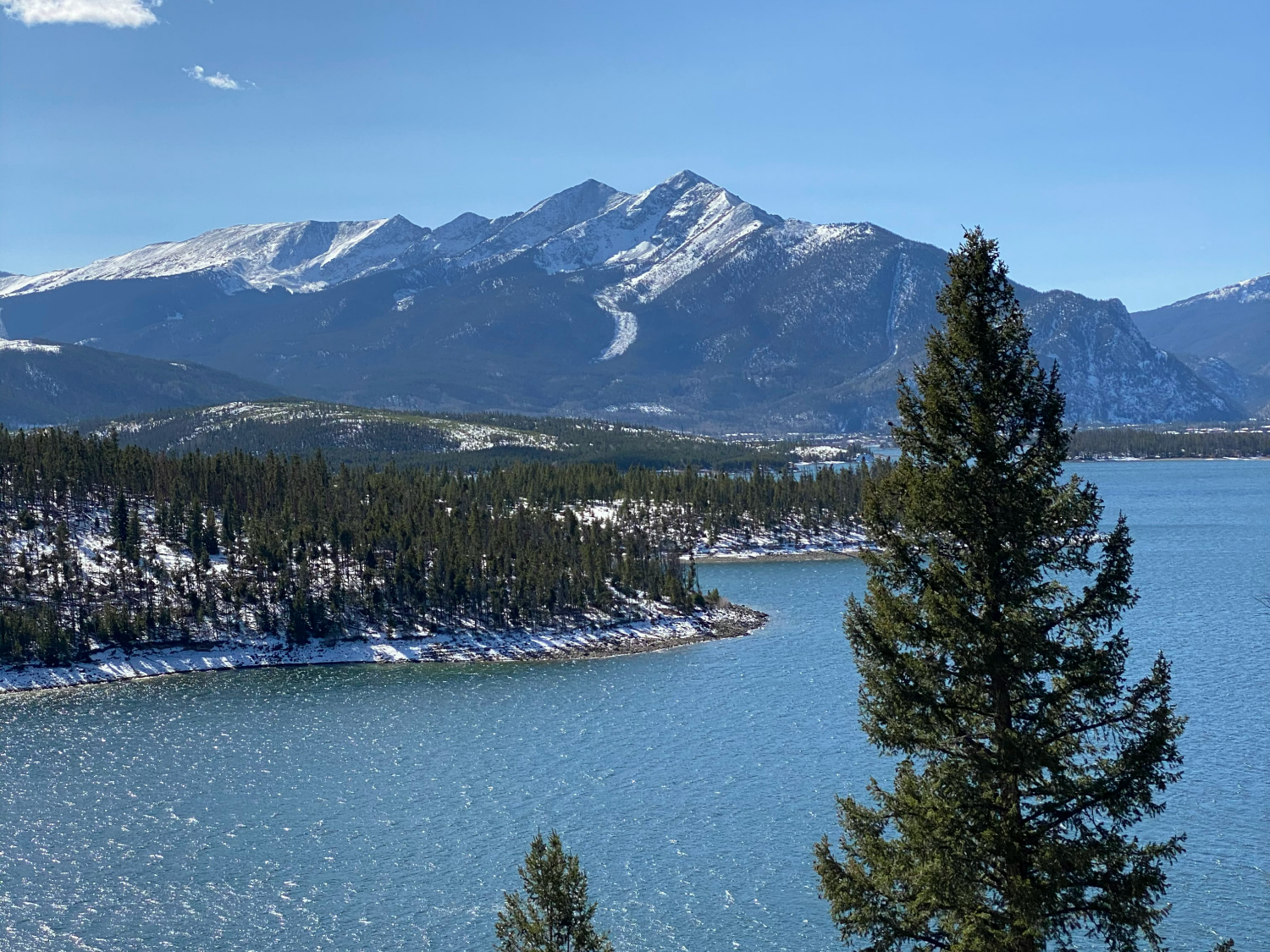
- High Country Conservation
- June 12, 2025
- Uncategorized
Dear Eartha, I read in the Summit Daily that Colorado’s snowpack is at its lowest point in 10 years. How does yet another bad snow year impact our water supply? And how can I help?
Most of Summit County’s water supply comes from snowpack and snowmelt. Climate change is the biggest threat to our snowpack and consequently, the long-term sustainability of our water supply. Average temperatures in Summit County are already warmer than they were 30 years ago. And projections from the Rocky Mountain Climate Organization indicate that we’ll continue to see hotter summers and warmer winters, decreasing snowpack levels and causing earlier spring runoff. These could mean scarcer water supplies and a ripple effect of negative environmental and community issues- like shorter ski seasons, lower river flows, and a greater need for outdoor irrigation.
The water we see isn’t the water we get
Eighty percent of the water in Colorado is located on the western slope stored in snowpack and reservoirs, while nearly 90% of the state’s population lives on the eastern slope. This population distribution challenge was solved years ago by large-scale water projects that divert water from west to east. But by sending more water east over the divide, there’s less for residents of the western slope.
We must recognize that even though there appears to be plenty of water in the county (especially with the Dillon Reservoir at the heart of the county), there is much less water available than is visible. This is why it’s important for Summit County residents to be as efficient as possible with the water that we do have.
Reduce your water footprint
Do you have a yard or outdoor plants that you water? If so, the most important thing you can do to save water is to monitor your outdoor water use. In fact, data show that as much as 50% of the water we use outdoors is wasted due to poor watering methods, inefficient irrigation systems and evaporation. As your lawn and garden begin to thaw, get ready for planting season by scheduling a Water Smart irrigation assessment with the High Country Conservation Center (HC3). The assessment will ensure that your irrigation system is operating efficiently. After your assessment, you’ll receive a report detailing a list of recommendations to keep your space beautiful without wasting water. HC3 offers rebates to help cover the cost of the assessment as well as rebates for eligible efficiency upgrades you make. Don’t own your lawn? Talk to your HOA board or business owner as HC3 has rebates for them, too!
Looking for other ways to conserve water?
- No matter where you live in the county or how you water your grass, follow these watering guidelines for a healthy, water-smart lawn. And remember, anyone who has a well is not allowed to irrigate without a Water Augmentation Plan.
- Transform your lawn into a beautiful mountain oasis. Find tips, landscaping plans, and more on HC3’s website to help you replace unused areas of your grass lawn with drought-resistant plants that conserve water, support pollinators, and look beautiful all summer long.
- Drink beer, not water! Join HC3, Friends of the Dillon Ranger District, Blue River Watershed Group and Friends of the Lower Blue for the “Water in the West” series at Highside Brewing in Frisco. Each month, attendees will learn about critical water issues impacting our region. Join the conversation and become part of the solution through these free, inspirational, and educational events. Our first event will be Wednesday, June 18, 5:30pm – 7pm. Learn more and sign up on HC3’s website.
As our climate warms and water becomes scarcer, it’s more important than ever that we all do our part to get water smart and make every drop count. Whether you’re upgrading your irrigation system, swapping thirsty grass for native plants, or just learning more over a cold beer at Highside, there’s a place for everyone in this effort. The choices we make today—big or small—will shape the future of our rivers, forests, and communities. Let’s work together to keep Summit County thriving, one drop at a time.
Ask Eartha Steward is written by the staff at the High Country Conservation Center, a nonprofit dedicated to waste reduction and resource conservation. Submit questions to Eartha at info@highcountryconservation.org
